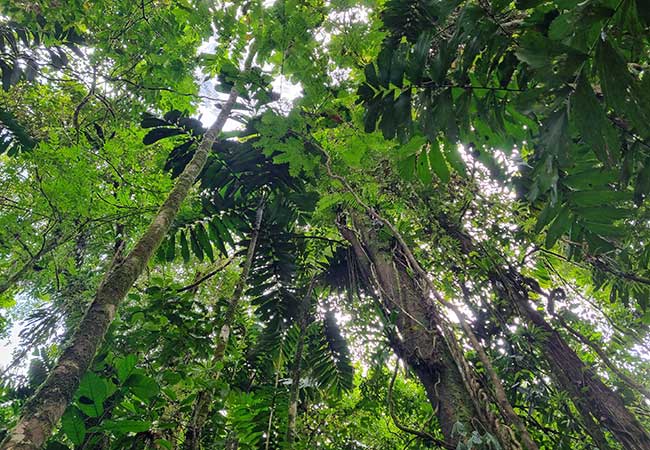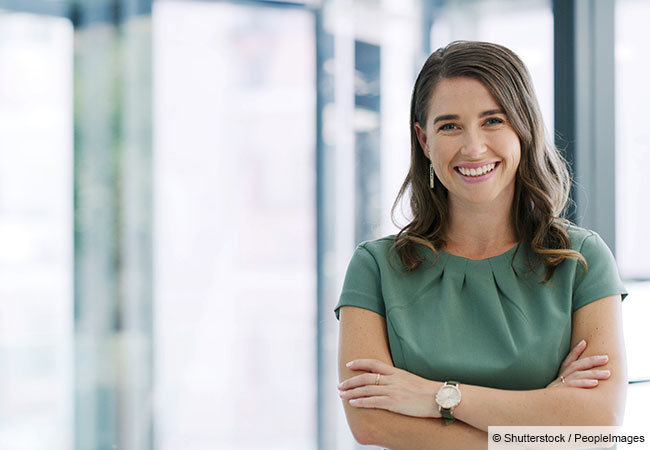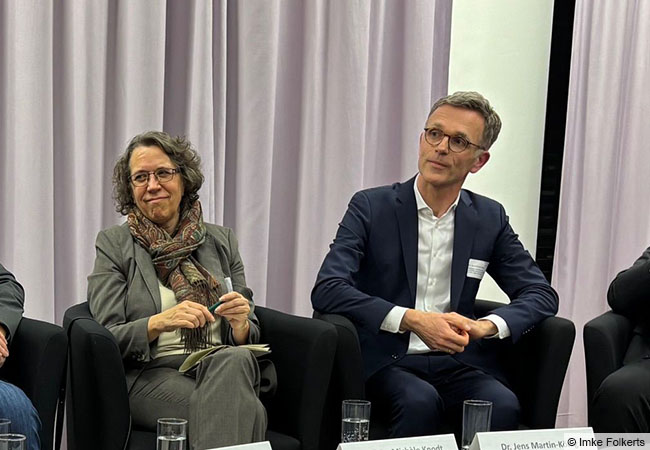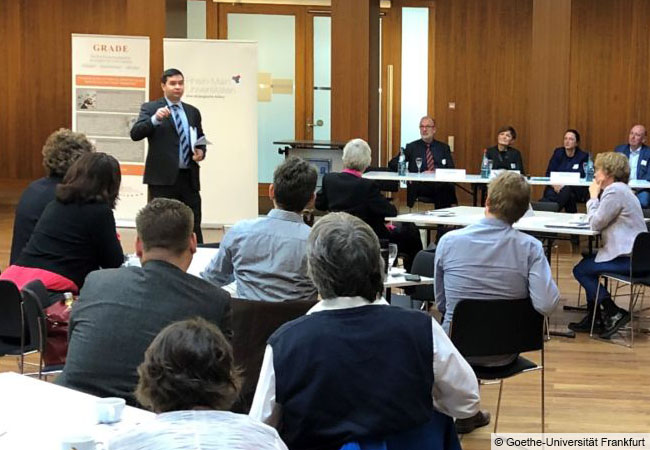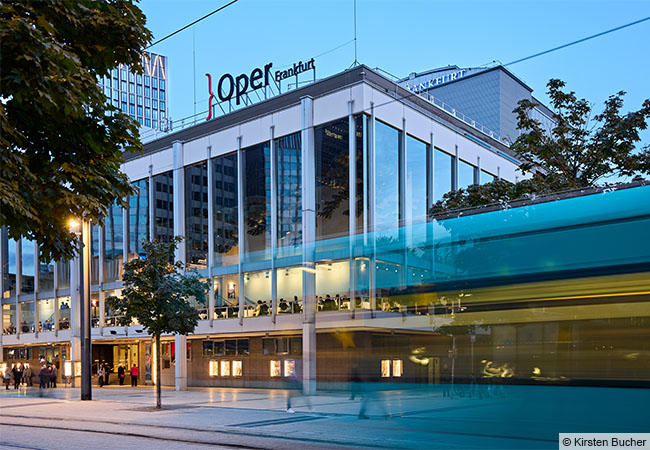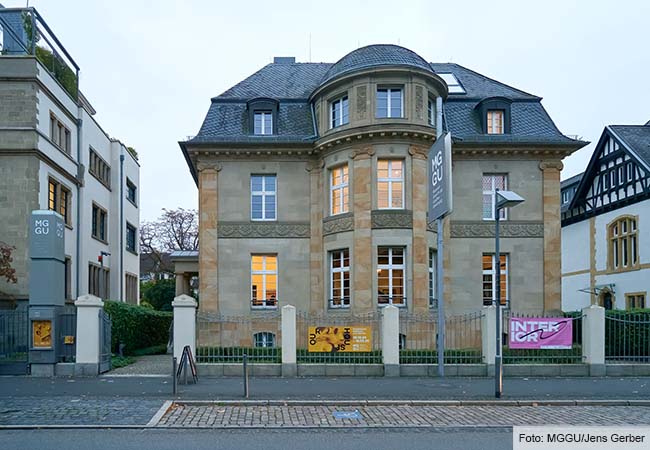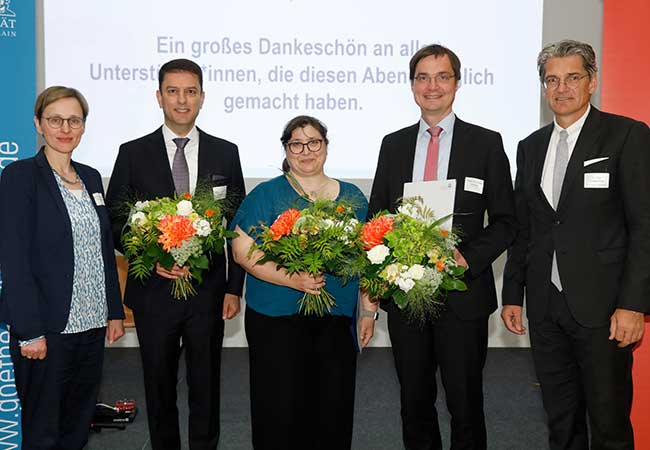
This year’s winners of the 1822 University Prize for Excellent Teaching are dentist PD Dr. Puria Parvini; Dr. Bianca Bertulat, coordinator of a Goethe orientation study program; and Prof. David Käbisch, professor of religious education. This is the 22nd time the prize – a joint initiative of Goethe University Frankfurt and the Frankfurter Sparkasse Foundation – was awarded.
This year, Goethe University’s 1822 University Prize for Excellent Teaching went to a dentist, the coordinator of a natural science orientation program, and a Protestant religious education teacher. In its 22nd edition, the prize is awarded jointly by the Frankfurter Sparkasse Foundation and Goethe University.
The first prize, worth €15,000, went to PD Dr. Puria Parvini, assistant director at Goethe University’s Polyclinic for Dental Surgery and Implantology. Worth €10,000, the second prize was awarded to Dr. Bianca Bertulat, coordinator of Goethe University’s Natural and Life Sciences Orientation Study Program. Prof. David Käbisch, who holds the professorship for religious education and didactics of Protestant religious education at the Faculty of Protestant Theology, won the third prize, worth €5,000.
„We should talk much more about what constitutes good teaching: The topic simply belongs in the spotlight,“ Prof. Christiane Thompson, Goethe University Vice President Teaching, Study and Further Academic Education, said during the award ceremony. „Our students deserve to receive the best possible education and training – irrespective of the career path they will eventually choose. In the end, there can be no cutting-edge research without enthusiastic, inspiring teaching and a dedicated faculty. With the 1822 University Prize, we have a means of pointing out outstanding individuals that can serve as an example,“ she continued.
Dr. Ingo Wiedemeier, Chairman of the Board of Frankfurter Sparkasse: „It was with a view towards making excellent teaching visible and giving it the recognition it deserves that the Frankfurter Sparkasse Foundation established a partnership with Goethe University 22 years ago, and launched the 1822 University Prize for Excellent Teaching. Since then, each year it has been a great pleasure for us to spotlight and honor the special commitment of the award winners and their achievements.“
The motto of this year’s award ceremony was „Experience Excellent Teaching“. The event was moderated by Thessa König and Felix Burose, both students of theater, film and media studies at Goethe University, who took on the role of lecturer and gave an introductory seminar titled: „Introduction to Excellent Teaching at Goethe University.“ In addition, the local improv theater „The Fox“ performed an interactive exercise on excellent teaching.
Awarded annually, the 1822 University Prize for Excellent Teaching raises awareness of the importance of innovative university teaching and highlights the commitment of outstanding teachers. The first and third prizes, totaling €20,000, are funded by the Frankfurter Sparkasse, while the second prize of €10,000 is financed by Goethe University. Whereas students decide which teachers they want to nominate for the prize, the decision on the winners is made by a commission composed of all relevant status groups as well as the management of the Frankfurter Sparkasse Foundation. The most important award criteria are innovation in teaching, outstanding quality of courses, and exceptional commitment to student support.
And the winners are…
PD Dr. Puria Parvini, winner ofthe 1st prize, is assistant director at the Polyclinic for Dental Surgery and Implantology. In their nomination letter, the students highlight Parvini’s outstanding commitment to conveying the latest scientific knowledge to the next generation of dentists. By drawing on detailed documentation of his patient cases, he fills the theoretical content of his lectures with life. In some cases, he has also allowed students to actively participate in operations. In addition to being available for questions outside of his working hours, Parvini also enables his students to attend lectures for licensed dentists. His interdisciplinary approach broadens students‘ professional horizons and comprehensively prepares them for their profession.
The 2nd prize went to Dr. Bianca Bertulat, coordinator of Goethe University’s Natural and Life Sciences Orientation Study Program, which is aimed at prospective students with a strong interest in the natural and life sciences, who are still unsure about what field of study they should decide on. The preceding orientation study program prepares the students to make a well-founded choice of study. To this end, Bertulat works with the faculties of Biological Sciences, Geosciences and Geography, as well as Sports Sciences to develop suitable learning formats, including, for example, two practical projects, a mentoring seminar and career orientation. Bertulat motivates students to engage in scientific thinking and fosters enthusiasm for the natural and life sciences. A passionate advocate for the further development of course offerings, she is constantly engaged in interdisciplinary conversations to that end.
The 3rd prize was awarded to Prof. David Käbisch, who teaches religious education and didactics of Protestant religious education at Goethe University. Students chose to nominate him for his innovative teaching, which includes imparting a high level of competence in multimedia teaching approaches. One very successful teaching project is Relithek.de, a multimedia portal for (inter)religious understanding and education, which has inspired a nationwide interreligious dialog. This project was expanded a year ago with another: SANE, the Self-learning tool Ambivalent Narratives in Explanatory Films, with which students studying to become teachers learn narrative-theoretical, media-didactic and subject-didactic categories for the analysis of explanatory films. Käbisch provides his students with both the philosophical and technical tools to engage with and discuss contemporary challenges, enabling them to incorporate and pass on these skills in their teaching work.
Other faculty members nominated in addition to the award winners:
- Dr. Rupert Abele, Faculty of Biochemistry, Chemistry and Pharmacy
- Dr. Mahmoud Bassiouni, Faculty of Social Sciences
- Dr. Johannes Friedrich Diehl, Faculty of Protestant Theology
- Prof.in Dr. Frederike Felcht, Faculty of Modern Languages
- Marlene Hastenplug, cand. mag., Faculty of Modern Languages
- Dr.in Lena Hoffmann, Faculty of Modern Languages
- Dr.in Mariam Kamarauli, Faculty of Linguistics, Cultures and Arts
- Dr.in Friederike Korneck, Faculty of Physics
- Prof.in Dr. Antje Krause-Wahl, Faculty of Linguistics, Cultures and Arts
- Prof.in Dr. Meike Piepenbring, Faculty of Biological Sciences
- Dr. Patrick Poppe, Faculty of Roman Catholic Theology
- Prof. Dr. Jochen Roeper, Faculty of Medicine
- Mohamed Salhi, M.A., Faculty of Social Sciences
- Prof. Dr. Achim Schmidtko, Faculty of Biochemistry, Chemistry and Pharmacy
- Prof. Dr. Martin Schultze, Faculty of Psychology and Sports Sciences
- Dr.in Katja Schulz, Faculty of Modern Languages
- Jonas Schwarzlose, M.A., Faculty of Social Sciences


